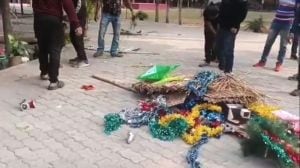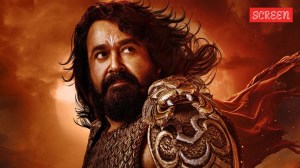Stay updated with the latest - Click here to follow us on Instagram
A Classic Question
Marathi is likely to get a classical Indian language status,but language practitioners remain wary of the benefits
For the past one month,a handpicked team of eminent authors and historians,appointed by the state government,has been sifting through more than 200 documents and reference books to present a strong case for the inclusion of Marathi in the list of Indian classical languages. The committee submitted a report to the central government in June. If their efforts are successful,Marathi will join the league of Tamil,Sanskrit,Kannada,Telugu and the most recent addition,Malayalam. While the possibility of classical status has pleased many,others insist that giving the language a status is just the beginning.
This development has triggered a lot of recommendations by linguists,authors and historians for its promotion. While Milind Bokil,author of the award winning book Shala,feels proud that the language may get the deserved recognition,he feels it is inadequate to address the larger problem faced by it. We send our children to the best English medium schools and hardly encourage them to read and write in Marathi or even speak their mother tongue at home. Yet,we demand that our language should be recognised. Theres something hypocritical about this, says Bokil.
This apart,the tag classical may come with some baggage. To me,the word classical means untouched and of a particular time period. If I may say so,Marathi is a rather contemporary and cosmopolitan language. Then why give it just one tag and call it classical? asks Bokil. According to him,instead of eyeing the tag,steps should be
taken to restore regional and district libraries,and bring out more encyclopedias and dictionaries in Marathi,apart from publishing more books on physics,chemistry,biology and anthropology in the language.
Arun Naik,author,editor and translator,agrees that the classical status wont do much for the langauge. Like Bokil,he believes that during the last decade,Marathi has acquired a contemporary feel to it. People give their own touch and flavour to the language. But this can harm the language when people get used to speaking with incorrect grammar, he says.
Naik suggests that a lot of work be done at the primary level to ensure that the language is spoken and written correctly. Teachers should be given proper training as to how to teach the language and encourage its use. All
the decades old Marathi textbooks should be replaced with newer content, he says.
Leena Sohoni who has translated books such as Kane and Able,Not Without My Daughter and Lajja into Marathi notices a sea of difference in the Marathi spoken today and what she grew up speaking. Our parents did make a conscious effort to teach us Marathi language and culture. We are not so particular these days, she says. The grant that the state will get if the classical status becomes a reality,should be utilised in promoting the language in and outside Maharashtra and India,adds Sohoni.
The publishing world,too,has joined the chorus for Marathis promotion. Ramdas Bhatkal,owner of Popular Prakashan,says,There are hardly any childrens books in Marathi available in the market today. More audio-visual books,nursery rhymes and story books in Marathi should be brought out. Bhatkal says that,unlike others,Marathi speakers dont harbour a sense of attachment for the language. If there is an English book worth
Rs 100,people dont think twice before buying it. But a book in Marathi,even if priced much lesser,is not preferred, adds Bhatkal.
Though Marathi practitioners are unsure about how the classical status will help the language,they still have reasons to cheer. This has at least put the language in the spotlight. We can use this attention and get some much needed work done, Bokil says.







